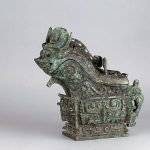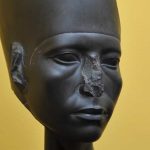Carved Wooden Mask
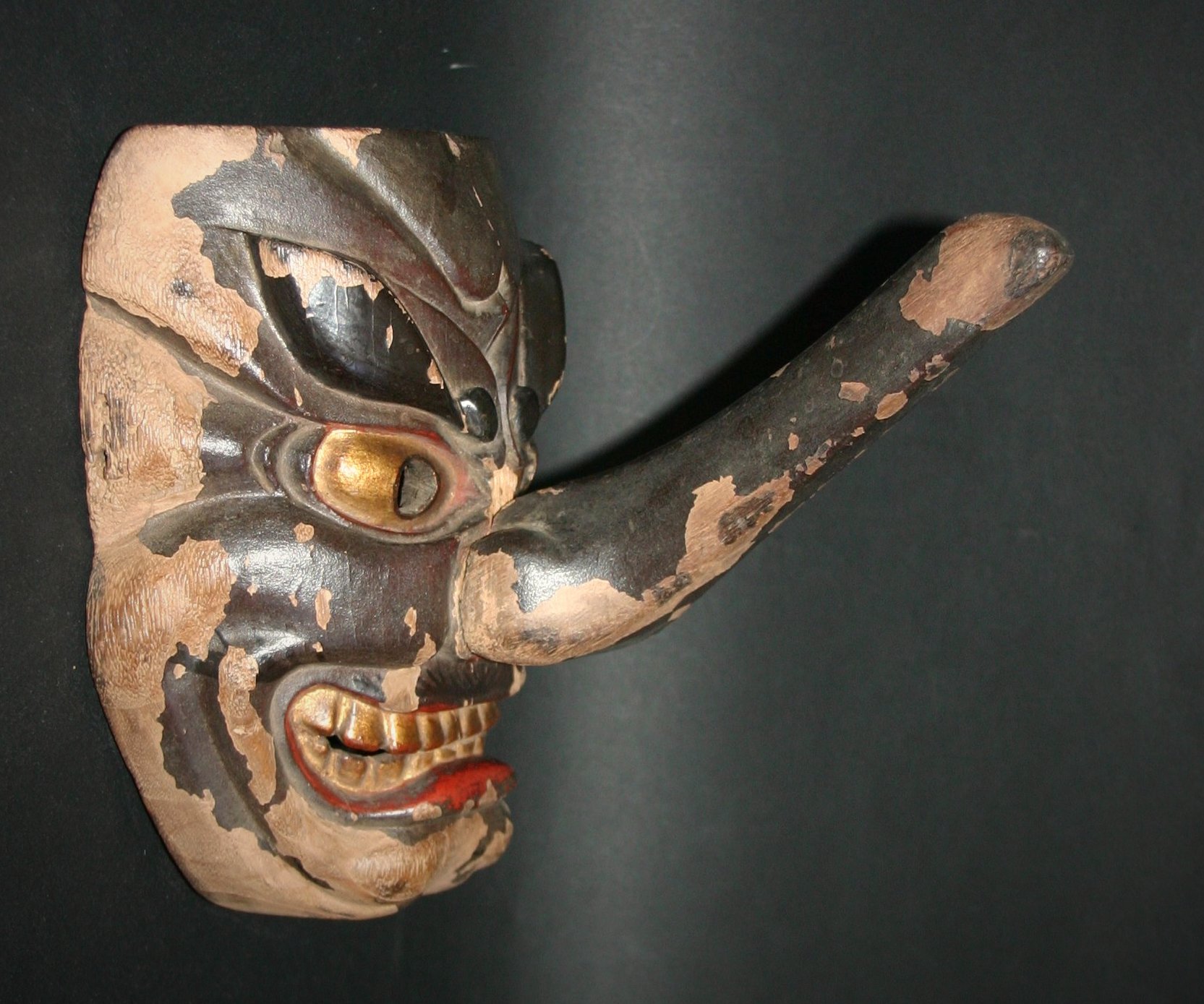
Carved Wooden Mask 🪵🎭 (Tengu Mask)
Japan 🇯🇵 | Edo Period (1603–1868)
This striking carved wooden mask, characterized by its exaggerated long nose and fierce expression, represents a Tengu, one of the most iconic figures in Japanese mythology and performing arts. Tengu are supernatural beings—half-human, half-bird—known as powerful spirits of the mountains and forests. Over time, they evolved from fearsome demons into protective, yet mischievous, guardians of sacred spaces.
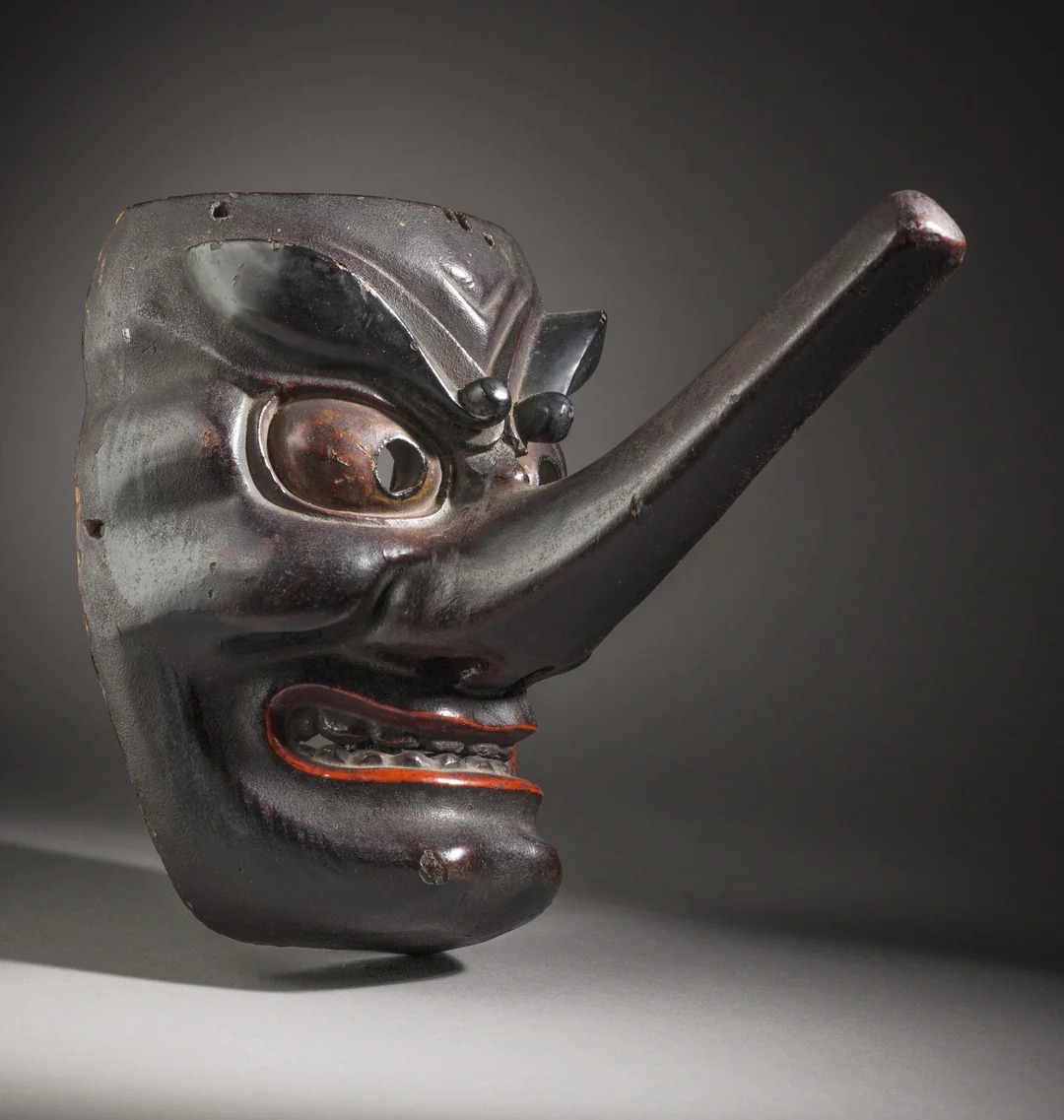
During the Edo period, masks like this one were crafted with remarkable skill from wood and finished with layers of lacquer to achieve a glossy, durable surface. The sharp eyebrows, bulging eyes, and long protruding nose express the Tengu’s supernatural strength and arrogance, traits often associated with warrior monks or Yamabushi (mountain ascetics).
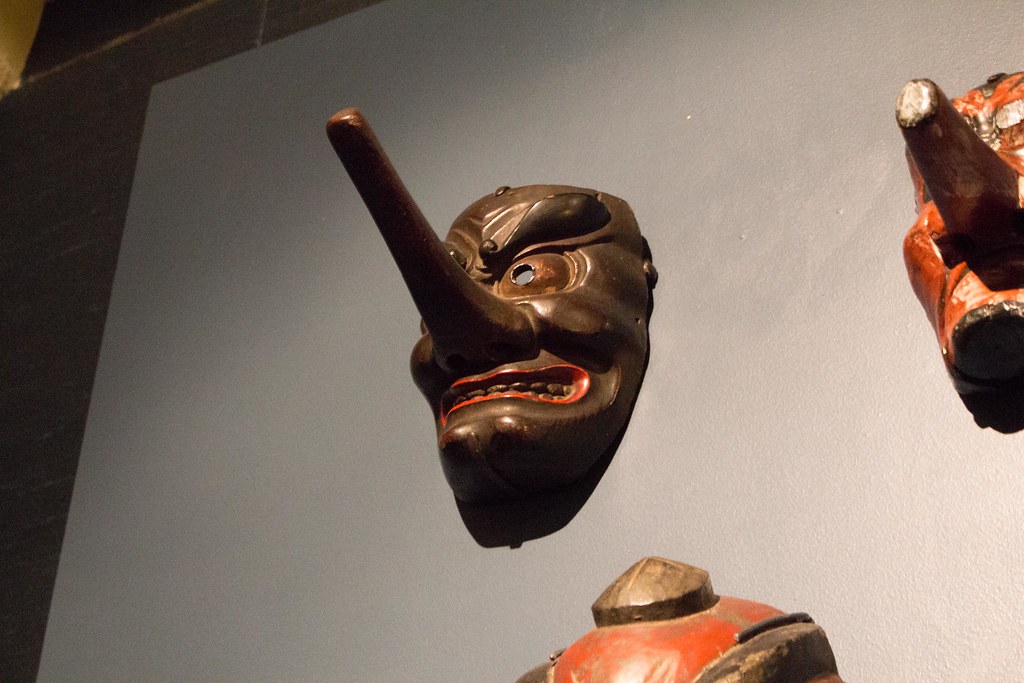
Such masks were traditionally used in Noh theater, festival processions, and Shinto rituals, where Tengu symbolized both chaos and wisdom — embodying the delicate balance between human pride and spiritual enlightenment. The red and black lacquer details emphasize its dramatic and intimidating appearance, designed to captivate audiences and invoke respect for the divine forces it represents.

This mask exemplifies the artistry and spiritual symbolism of Edo-period Japan, blending craftsmanship, folklore, and religious belief into a single powerful cultural artifact.




